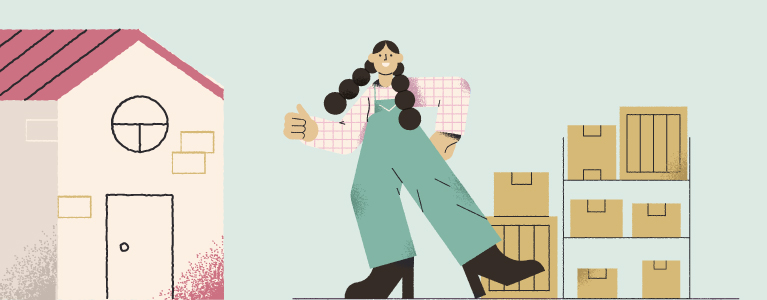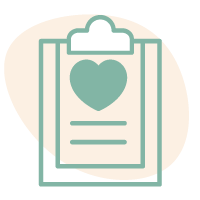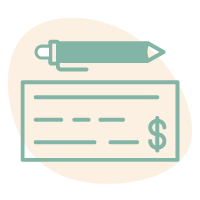Resources for Young Adults Leaving Home for the First Time

“Adulting is a mindset: ‘I’m in charge of myself. I’m going to be responsible for my body, my bills and my belongings’,” said Julie Lythcott-Haims, former dean of freshmen at Stanford and author of the book Your Turn: How to Be an Adult.
The definition of adulthood has changed. The traditional markers of adulthood accepted by earlier generations—completing your education, leaving home, finding work, getting married and having children—no longer fit many young people’s lives, and that’s OK, Lythcott-Haims says.
“Today’s young adults have so many more freedoms available to them, and I think it’s time we had a definition of adulting that acknowledged that people lead different lives and that there isn’t a lockstep set of rules you have to adhere to in order to legitimately be an adult,” Lythcott-Haims said on a podcast. She defines adulthood as “that sweet, delicious set of independent years between childhood and death where we’re well and able to make our own way.”
For many young people, graduating, living on their own, starting their career and other transitions to adulthood can bring up feelings of anxiety, fear and loss, especially during the ongoing pandemic. They may benefit from seeing a counselor or therapist to help them process these feelings. Counselors can help young adults understand that “they’re not alone and that it totally makes sense to struggle right now. They also may be scared at feeling unsettled, which may be a new feeling for them,” said licensed professional counselor Patricia Anderson in an interview with Counseling Today.
Here are some resources to help young adults make their own way in the world.

Taking Care of Your Body and Mind
As an adult, you are responsible for your own physical, mental and emotional well-being. Here are some resources that can help.
What to Expect When Going to Therapy for the First Time, Shondaland. This article offers tips and links for finding a therapist (including ones who specialize in serving clients of color or in the LGBTQ+ community), understanding their credentials and what to expect at your first appointment.
Types of Therapy, Psychology Today. From art therapy to trauma-focused cognitive behavioral therapy, there is a specialty for every person and every need, as listed in this guide.
Therapy for Every Budget: How to Access It, Healthline. This article covers what therapy typically costs and how to pay for it, along with free or lower-cost options such as therapy apps and support groups.
3 Things to Know Before You Pick a Health Insurance Plan, HealthCare.gov. Understanding health insurance can be challenging, whether you’re choosing an employer-sponsored plan or buying coverage individually. Find out about the different plan types (e.g., HMO vs. PPO), what your costs will be (e.g., what a premium and deductible are) and how to find out whether your doctors and medications are covered.
Healthy Eating for Young Adults, MyPlate.gov. Tips for maintaining a nutritious diet, including what to eat for protein, how much of your daily intake should be whole grains and which apps can help you shop for and prepare healthy foods.
Young Adults and Physical Health: What You Need to Know, Today. There are specific guidelines related to physical activity, sleep, vision and sexual health for people in their 20s.
8 Important Health Appointments Not to Skip in Your 20s and 30s, Real Simple. Medical experts say prevention is better than a cure: key screenings for young adults, plus what to bring to your appointment.
Healthy Living in Your 20s, Office on Women’s Health. The Department of Health and Human Services offers this downloadable and printable checklist for healthy daily habits, tests to talk to your doctor about and more.
9 Actually Compelling Reasons You Should Work Out in Your 20s, The Source. This nonprofit women’s health organization offers tips and statistics that can be beneficial for any young adult.
Sleep Health, National Heart, Lung and Blood Institute. As many as 1 in 3 adults do not regularly get enough uninterrupted sleep. Lack of sleep is linked to many chronic diseases, and it can impact work, school, driving and social interactions. Find out more about healthy sleep and sleep disorders.

Handling Your Bills and Finances
Paying your bills, budgeting for necessities and saving for the future can seem daunting if you’ve never been in charge of your finances before. Learn more about money with these resources.
Two Cents. This YouTube series from PBS offers engaging, practical videos by a married couple who are also financial planners, such as Budgeting Basics, How to Weigh Job Benefits and more.
So Money. This podcast hosted by Farnoosh Torabi, personal finance expert and CNET Money’s editor at large, covers a wide range of topics related to young adults, such as splitting expenses when living with a significant other and whether it’s recommended to take out a personal loan to pay for a wedding.
The College Investor Audio Show. This short-format podcast covers personal finance and investing topics ranging from getting out of student loan debt, to taking on a side hustle and earning more money, to learning to invest and build wealth.
What Is a Credit Score? You may have heard the terms “credit score” and “credit report,” but what do they mean and how do they impact your ability to open a credit card, take out a car loan or qualify for a mortgage? This article from ConsumerFinance.gov gives a good overview.
Credit Cards vs. Debit Cards: What’s the Difference? Do they both charge fees and interest? Which is the better choice for building credit? What are the pros and cons of using one type of card versus the other? This article from Investopedia compares the two in detail.
Five Tips for When You Can’t Pay Your Bills. What happens if you don’t have enough money to pay your rent, electric bill, student loan payments, etc.? Ignoring them is not a good idea. This video from ConsumerFinance.gov outlines practical steps for prioritizing your bills, delaying payments and other actions you can take.
How Do You Know You’re Getting a Good Deal at the Grocery Store? A simple tip to saving more when food shopping is understanding unit pricing. If one can of soup costs more than another but is larger, it may be a better deal. This article explains how to read the labels to make the smartest purchase.
How Much Should I Spend on Rent? Before you sign the lease on an apartment, it’s a good idea to know your numbers: How much can you afford to spend on rent? What are your other monthly costs? Will where you live create other costs, such as commuting? This article from personal finance site Nerdwallet breaks down the math and offers ideas on how to make it work.
Free Budget Spreadsheets and Budget Templates. There are many different ways to budget and track where you spend your money, and many tools to help you do so. Nerdwallet’s roundup of free online tools including downloadable worksheets, apps and budget calculators is a good place to start.
10 Tips for Negotiating Your First Job Offer (and Every One After That!) Accepting the first salary offered can cost you over time. A study found that neglecting to negotiate just $5,000 more could mean the loss of more than $600,000 over the course of a career. This CNBC article gives tips on being prepared and confident in your negotiations.
Understanding Your First Paycheck (and Why It’s So Much Smaller Than You Thought). How does your annual salary translate into take-home pay? What are all those taxes being taken out? And what if you’re a freelancer? This CNBC article breaks down the math and tells you what you can expect from your paycheck.

Managing Your Belongings and Household
Successful adulting requires understanding many things you might not have had to think about before you went out on your own: insurance, laundry, basic home maintenance and more. Luckily there are lots of resources to turn to for help.
The Ultimate First Apartment Checklist. Besides furniture and decor, you’ll need a number of essentials, such as clothes hangers, a can opener and a vacuum, to name a few. Real Simple has put together this room-by-room checklist you can print or save on your phone as you gather everything you need for your new space.
Renters Insurance: What Does It Cover and How Much Does It Cost? Your landlord’s insurance only covers the building. You will need renters insurance to protect your personal belongings from theft or damage. The good news is that it’s fairly cheap: The median monthly premium for renters insurance in the United States is around $15.
Auto Insurance Basics. If you are over 18, drive a car and no longer live at home, you will need to have auto liability insurance. Car insurance provides property, liability and medical coverage in case you are in an accident. This article explains the six different kinds of coverage that comprise a basic auto insurance policy and affect the cost.
Essential Things to Keep in Your Car. Besides a spare tire and your insurance info, what else should you have in your car? AAA lists what you’ll need for safety, on-the-go maintenance and protecting yourself from the elements on a road trip.
Dad, How Do I? Father of grown children Rob Kenney has 4 million subscribers to his YouTube channel, where he teaches viewers practical life skills like how to jump-start a car, how to stop a running toilet and how to tie a tie, peppered with dad jokes.
How to Do Laundry: A Step-by-Step Guide on the Right Way to Sort, Wash and Dry. Good Housekeeping offers practical tips to clean and care for your clothing and linens, including how to wash specific fibers, what all those laundry symbols on clothing tags mean and how to get rid of common stains.
Essential Life Skills for Teens: The Laundry Episode. If you’ve never done your own laundry, you may not know whether you need to sort your clothes by color or type or how to set the washing machine to the right temperature. If you’re a visual learner, this video—part of a series by the Goffstown, N.H., Public Library—walks you through the steps.
The Ultimate Guide to Dress Codes: What to Wear for Every Occasion. Do you have to wear a suit to a job interview? What does business casual mean? This article from Lifehack offers some guidelines and suggestions for making a good first impression in work and social situations.
How to Navigate the Shift From College Student to Real-World Professional, According to Career Experts. There’s more to navigating adulthood than having the right clothes and paying your bills. This article, part of Real Simple’s Adulting Made Easy series, offers advice from therapists and career coaches on managing anxiety, creating structure and finding your purpose.
Books for Young Adults Going Out on Their Own
There are a number of books that offer advice, guidance and strategies to young adults on how to navigate work, money, relationships and more. Here are a few.
How to Adult, A Practical Guide: Advice on Living, Loving, Working, and Spending Like a Grown-Up by Jamie Goldstein, PsyD
Adulting Made Easy: Things Someone Should Have Told You About Getting Your Grown-Up Act Together by Amanda Morin
Grown-Up Stuff Explained: 75 Topics 18-Year-Olds Should Know by Witty Ryter
Adulting 101: #Wisdom4Life – A Complete Guide on Life Planning, Responsibility and Goal Setting by Josh Burnette and Pete Hardesty
Grad to Grown-Up: 68 Tips to Excel in Your Personal and Professional Life by Gene Rice and Courtney Bejgrowicz
Anxiety Relief for Teens: Essential CBT Skills and Mindfulness Practices to Overcome Anxiety and Stress by Regine Galanti, PhD
The New Rules of Work: The Muse Playbook for Navigating the Modern Workplace by Alexandra Cavoulacos and Kathryn Minshew
How to Talk to Anyone About Anything: Improve Your Social Skills, Master Small Talk, Connect Effortlessly, and Make Real Friends by James W. Williams
Emotional Intelligence: Why It Can Matter More Than IQ by Daniel Goleman
Make Your Bed: Little Things That Can Change Your Life…And Maybe the World by Admiral William H. McRaven
Resources for Parents Whose Children Are Leaving Home
It can be challenging for caregivers to find the balance between helping prepare children for adulthood and over-stepping, particularly for parents of children with learning disabilities or those on the spectrum. Here are some articles and books that may be helpful.
6 Independent Living Skills Kids Need Before Moving Away From Home, Understood.org
Here Are the 33 Life Skills Your Teen Needs to Know to “Adult”, GrownandFlown.com
5 Tips to Raise an Independent Teen to Become a Responsible Adult, VerywellFamily.com
How to Help Young People Transition Into Adulthood, Greater Good Magazine
The Breakaway: A Parent’s Guide to Transitioning the Autistic and Twice Exceptional Adolescent Into Young Adulthood by Thomas W. Welch, PsyD
The Loving Push: A Guide to Successfully Prepare Spectrum Kids for Adulthood by Temple Grandin and Debra Moore, PhD
How to Raise an Adult: Break Free of the Overparenting Trap and Prepare Your Kid for Success by Julie Lythcott-Haims
Doing Life with Your Adult Children: Keep Your Mouth Shut and the Welcome Mat Out by Jim Burns, PhD

